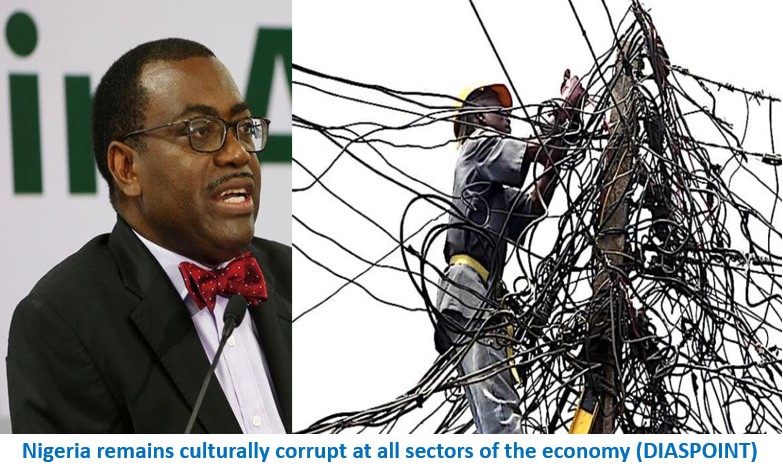AfDB president Adesina, Nigeria loses $29bn to poor power supply annually
Post By Diaspoint | July 16, 2023

The African Development Bank (AfDB) said Nigeria loses $29 billion due to poor power supply annually while manufacturers in the country spend as much as N10.1 trillion on energy.
AfDB president Dr. Akinwumi Adesina made this disclosure on Thursday as he raised concerns over the epileptic power supply in Nigeria while calling for an industrial revolution and manufacturing digitalisation.
Adesina said this while delivering a keynote lecture with the title, “The Day the Lion Roared! Making Nigeria a Global Industrial and Economic Giant” at the Business Day CEO Forum in Lagos.
“It has been estimated by the International Monetary Fund (IMF) that Nigeria loses $29 billion annually due to lack of and unreliable power supply or 5.8% of its GDP. Also, Nigerians spend $14 billion per year on generators and fuel,” Adesina said.
“Lack of electricity is killing Nigerian industries. According to the Manufacturers Association of Nigeria, industries spent N93.1 billion on alternative energy in 2018.
“No business can survive in Nigeria without generators. A recent survey of manufacturers in Nigeria shows they lose N10.1 trillion annually due to power failure.”
On the power sector, Adesina said that unless the country decisively tackles its energy deficiency and reliability, its industries would remain uncompetitive.
The former Nigerian minister for agriculture also spoke about the level of Nigeria’s underdevelopment, saying it is quite worrisome and something drastic needs to be done to address it.
“For now, Nigeria is developing too slowly and well below its potential. The challenge is for the lion to roar. Then, we will have the making of an economic giant.”
“Nigeria should have a greater ambition for its manufacturing sector by shifting to integrating into global and regional value chains, rapidly moving up the value chains in areas of comparative advantage, driving greater specialization and competitiveness.
Read More from original source
